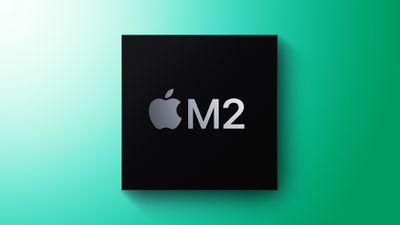Apple's custom next-generation Mac processor entered mass production this month, claims a new report today from Nikkei Asia. Tentatively dubbed the "M2" after Apple's M1 chip, the processors take at least three months to produce and could begin shipping as early as July in time for incorporation in Apple's next line of MacBooks, according to the paper's sources.

The next generation of Mac processors designed by Apple entered mass production this month, sources familiar with the matter told Nikkei Asia, bringing the U.S. tech giant one step closer to its goal of replacing Intel-designed central processing units with its own.
Shipments of the new chipset -- tentatively known as the M2, after Apple's current M1 processor -- could begin as early as July for use in MacBooks that are scheduled to go on sale in the second half of this year, the people said.
Produced by Apple supplier TSMC, Apple's custom M1 silicon made its debut late last year with the introduction of the Mac mini, MacBook Air, and 13-inch MacBook Pro, bringing considerable performance improvements and battery efficiency over the Intel chips it replaced.
Just last week, Apple unveiled redesigned 24-inch iMacs and a new iPad Pro lineup, and to underscore the hardware capabilities of the devices, Apple kitted them out with the same 5nm-based M1 processor found in its other Apple silicon Macs.
With an 8-core CPU, up to an 8-core GPU, a 16-core Neural Engine, unified memory architecture, and more, Apple says the M1 chip delivers up to 3.5x faster system performance, up to 6x faster graphics performance, and up to 15x faster machine learning, while enabling battery life up to 2x longer than previous-generation Macs.
Apple said in 2020 that it would take the company two years to fully transition from Intel chipsets to Apple silicon. Rumors suggest that future Apple silicon Macs will include new 14-inch and 16-inch MacBook Pro models with an all-new form factor as early as Q2 2021, in addition to a redesigned 27-inch iMac later this year and a smaller version of the Mac Pro, likely in 2022.






















